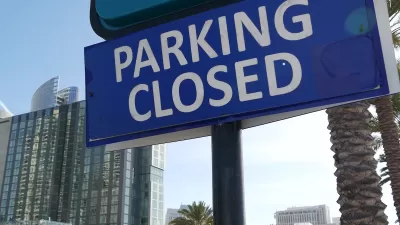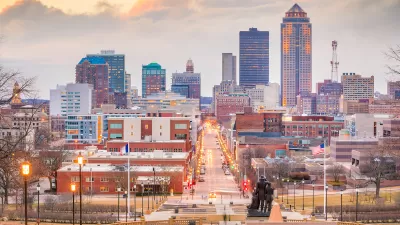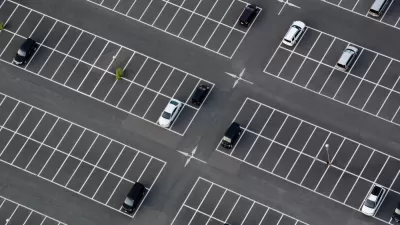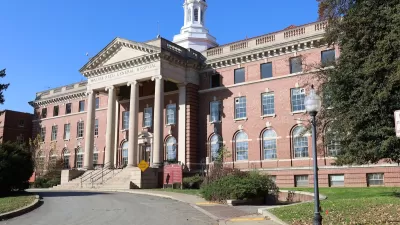Surface parking lots take up as much as a third of downtown land in some cities, dragging down tax revenue and redevelopment prospects.

In an opinion piece in The Washington Post, Travis Meier calls on cities to enact policies that promote the redevelopment of the many underused or vacant surface parking lots that occupy, on average, one-quarter of land in American city centers. “Our nation’s downtowns are full of these neglected spaces — surface lots of crumbling asphalt and weeds, emblematic of absentee property owners and a disregard for the public good. Other lots, not entirely abandoned, are often underused and unkept.”
According to Meier, “City centers need density and connection; surface parking lots destroy both.” When it comes to local tax revenue, surface parking lots are also a losing proposition for cities, limiting tax revenue and slowing down the development process. “The lot is assessed at a low rate, so corporations and landowners sit on their cheap land, waiting years for a top-dollar bidder as downtown real estate gets more expensive.”
One proposal that would spur more development of vacant parking lots is a land value tax, which assesses properties based on potential value, thus eliminating the incentive for owners to sit on the land. “City leaders should also encourage land sales by actively seeking buyers, offering financial incentives and reorienting preexisting blight programs.”
FULL STORY: Opinion: Empty parking lots are a drag on America’s downtowns

Study: Maui’s Plan to Convert Vacation Rentals to Long-Term Housing Could Cause Nearly $1 Billion Economic Loss
The plan would reduce visitor accommodation by 25,% resulting in 1,900 jobs lost.

North Texas Transit Leaders Tout Benefits of TOD for Growing Region
At a summit focused on transit-oriented development, policymakers discussed how North Texas’ expanded light rail system can serve as a tool for economic growth.

Using Old Oil and Gas Wells for Green Energy Storage
Penn State researchers have found that repurposing abandoned oil and gas wells for geothermal-assisted compressed-air energy storage can boost efficiency, reduce environmental risks, and support clean energy and job transitions.

Private Donations Propel Early Restoration of Palisades Playground
Los Angeles has secured over $1.3 million in private funding to restore the Pacific Palisades playground months ahead of schedule, creating a modern, accessible space that supports community healing after recent wildfires.

From Blight to Benefit: Early Results From California’s Equitable Cleanup Program
The Equitable Community Revitalization Grant (ECRG) program is reshaping brownfield redevelopment by prioritizing projects in low-income and environmental justice communities, emphasizing equity, transparency, and community benefits.

Planting Relief: Tackling Las Vegas Heat One Tree at a Time
Nevada Plants, a Las Vegas-based nonprofit, is combating the city’s extreme urban heat by giving away trees to residents in underserved neighborhoods, promoting shade, sustainability, and community health.
Urban Design for Planners 1: Software Tools
This six-course series explores essential urban design concepts using open source software and equips planners with the tools they need to participate fully in the urban design process.
Planning for Universal Design
Learn the tools for implementing Universal Design in planning regulations.
Ascent Environmental
Borough of Carlisle
Institute for Housing and Urban Development Studies (IHS)
City of Grandview
Harvard GSD Executive Education
Toledo-Lucas County Plan Commissions
Salt Lake City
NYU Wagner Graduate School of Public Service





























